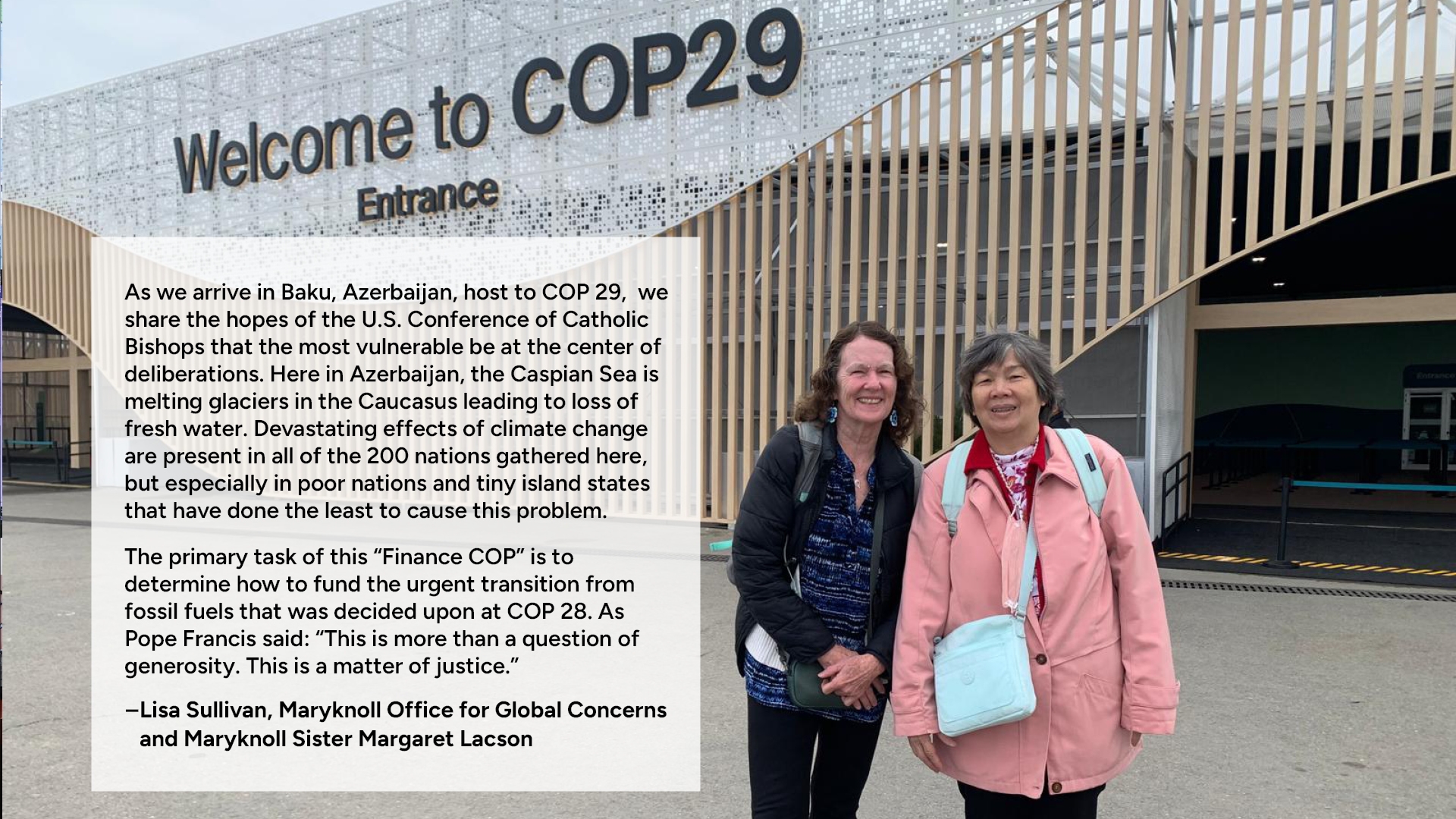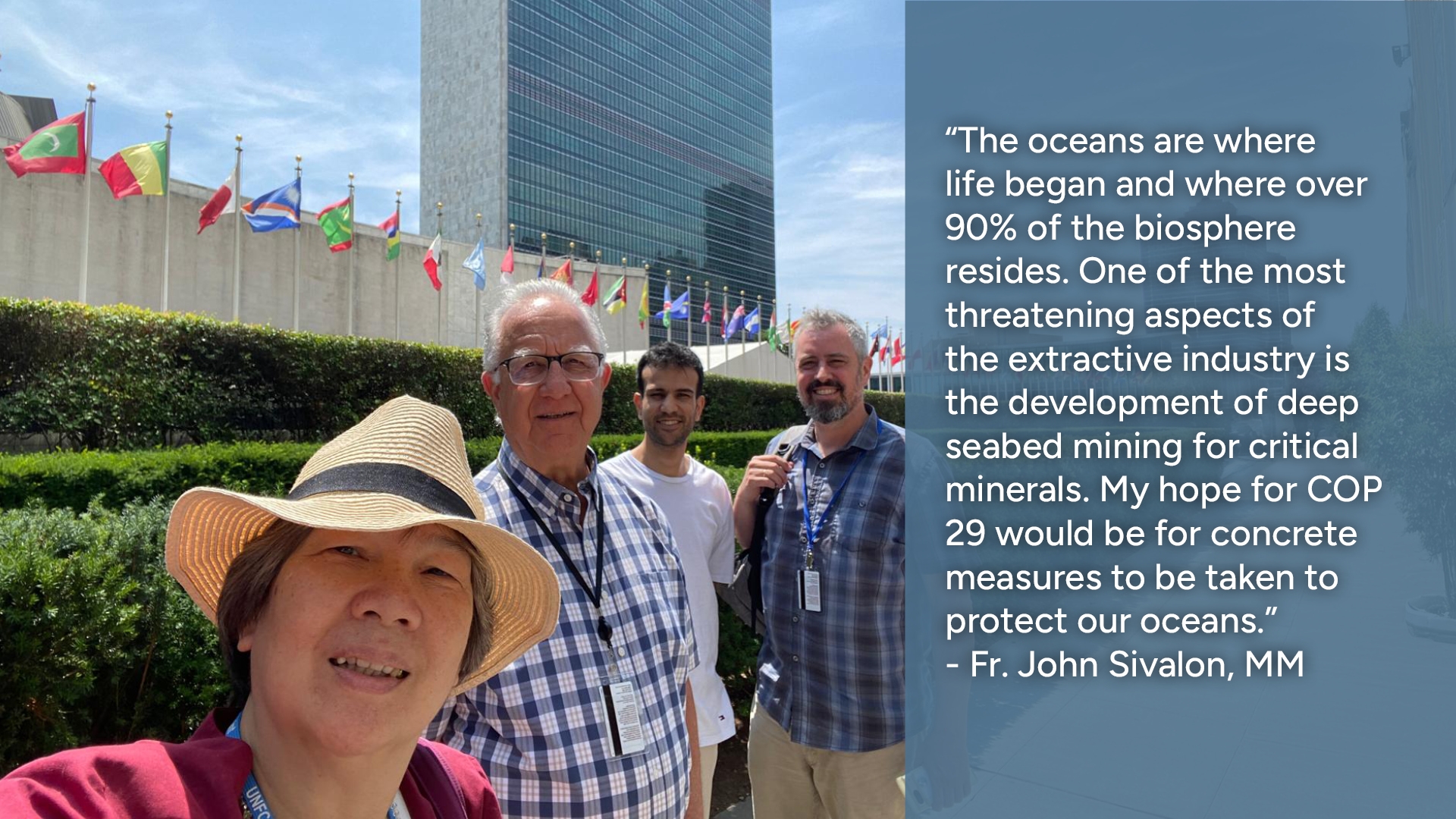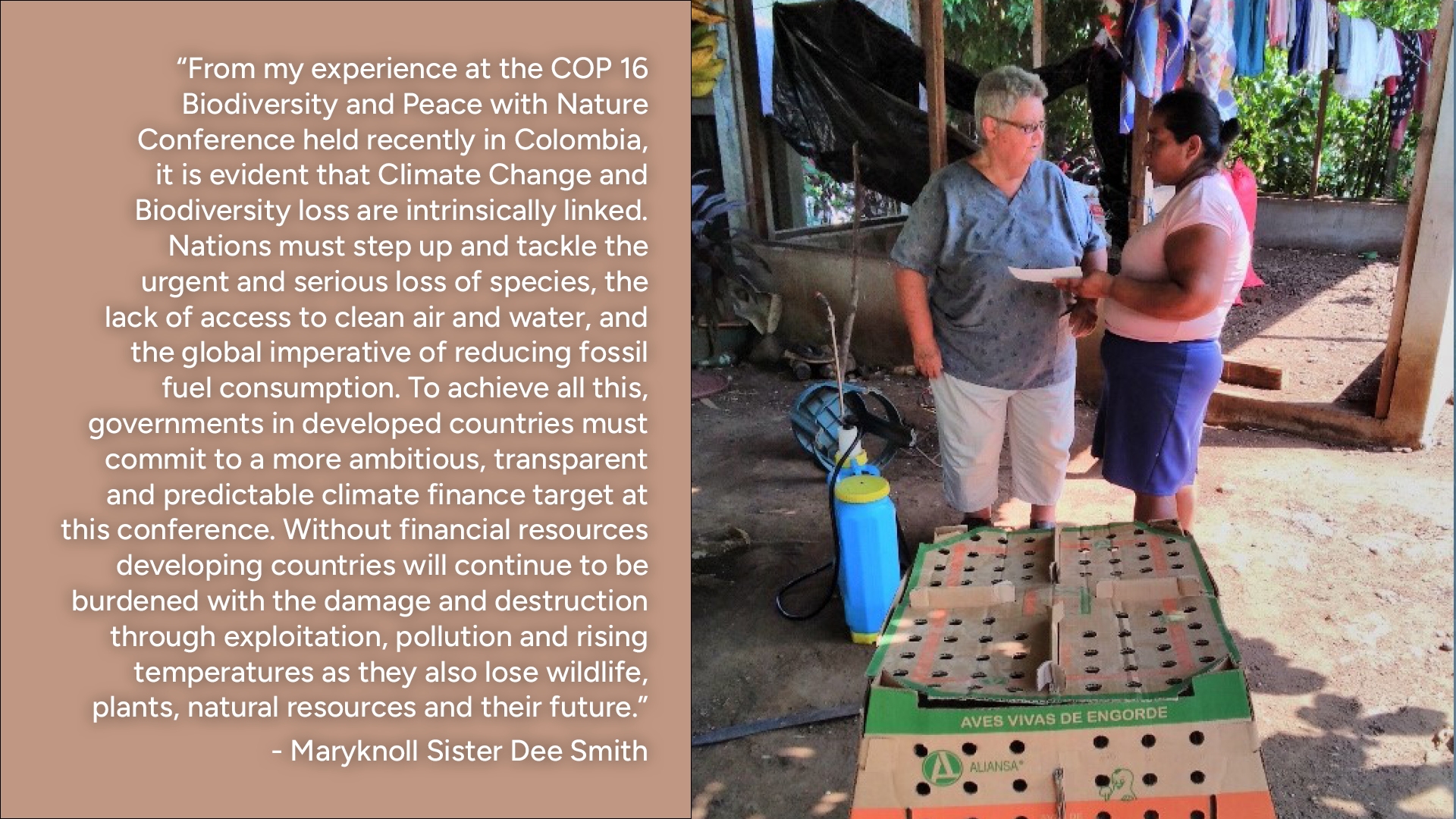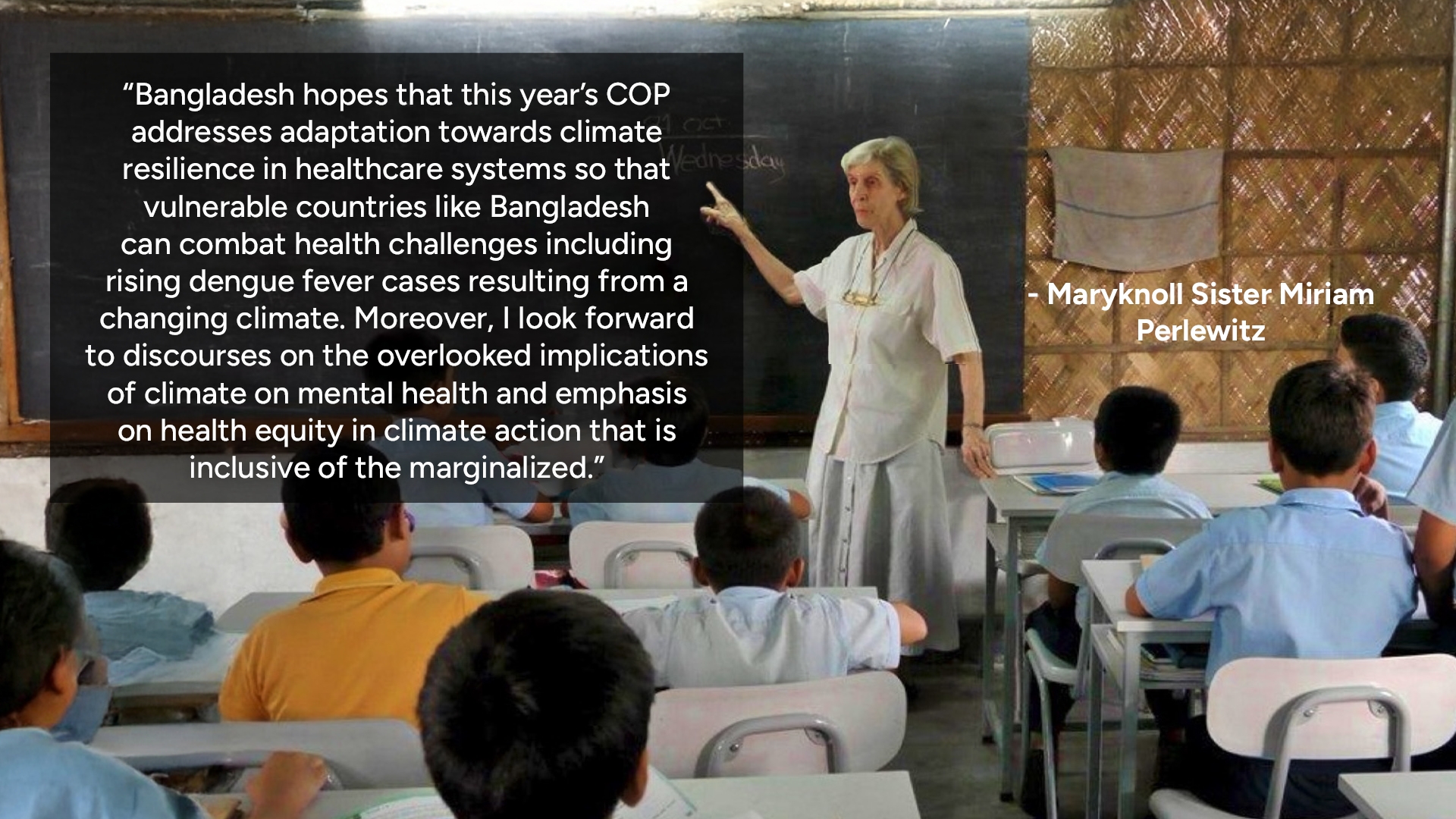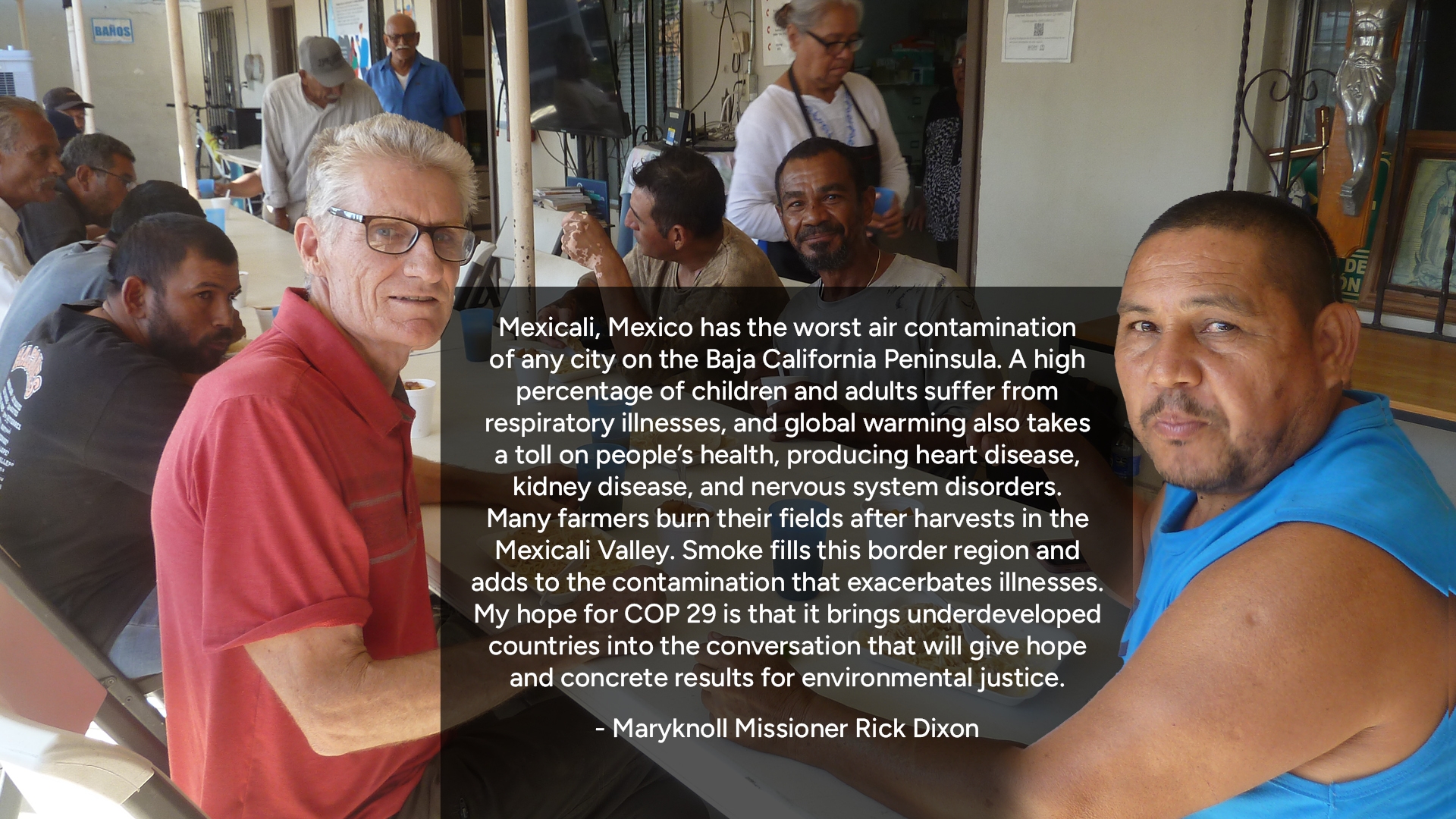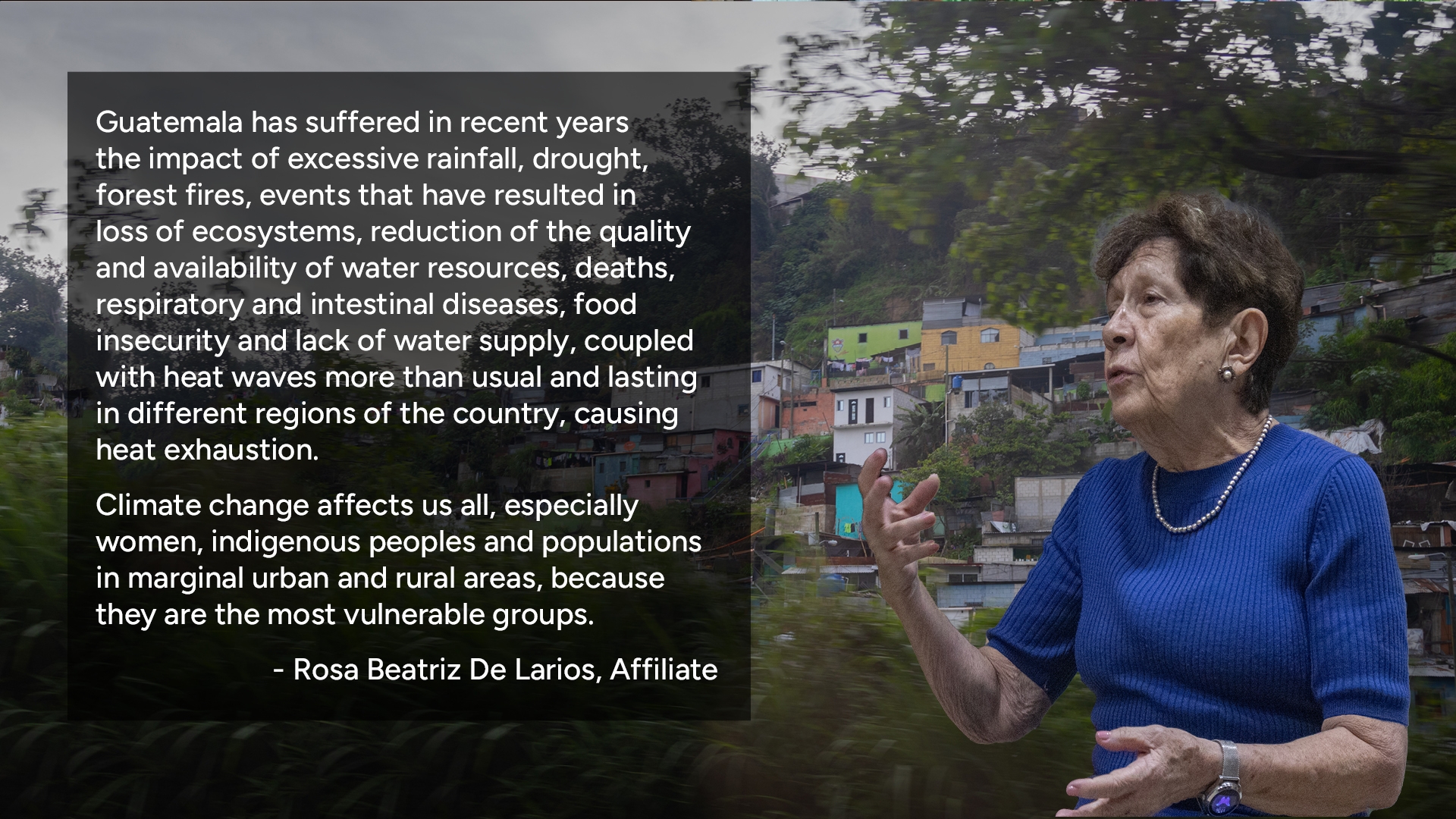Maryknoll Missioners from across the Maryknoll family share some of their hopes for the UN Climate Change Conference in Azerbaijan.
Quotes from missioners:
As we arrive in Baku, Azerbaijan, host to COP 29, we share the hopes of the U.S. Conference of Catholic Bishops that the most vulnerable be at the center of deliberations. Here in Azerbaijan, the Caspian Sea is melting glaciers in the Caucasus leading to loss of fresh water. Devastating effects of climate change are present in all of the 200 nations gathered here, but especially in poor nations and tiny island states that have done the least to cause this problem.
The primary task of this “Finance COP” is to determine how to fund the urgent transition from fossil fuels that was decided upon at COP 28. As Pope Francis said: “This is more than a question of generosity. This is a matter of justice.”
- Lisa Sullivan, Maryknoll Office for Global Concerns and Maryknoll Sister Margaret Lacson
“The oceans are where life began and where over 90% of the biosphere resides. One of the most threatening aspects of the extractive industry is the development of deep seabed mining for critical minerals. My hope for COP 29 would be for concrete measures to be taken to protect our oceans.”
- Maryknoll Father John Sivalon
“From my experience at the COP 16 Biodiversity and Peace with Nature Conference held recently in Colombia, it is evident that Climate Change and Biodiversity loss are intrinsically linked. Nations must step up and tackle the urgent and serious loss of species, the lack of access to clean air and water, and the global imperative of reducing fossil fuel consumption. To achieve all this, governments in developed countries must commit to a more ambitious, transparent and predictable climate finance target at this conference. Without financial resources developing countries will continue to be burdened with the damage and destruction through exploitation, pollution and rising temperatures as they also lose wildlife, plants, natural resources and their future.”
- Maryknoll Sister Dee Smith
“Bangladesh hopes that this year's COP addresses adaptation towards climate resilience in healthcare systems so that vulnerable countries like Bangladesh can combat health challenges including rising dengue fever cases resulting from a changing climate. Moreover, I look forward to discourses on the overlooked implications of climate on mental health and emphasis on health equity in climate action that is inclusive of the marginalized.”
- Maryknoll Sister Miriam Perlewitz
“Mexicali, Mexico has the worst air contamination of any city on the Baja California Peninsula. A high percentage of children and adults suffer from respiratory illnesses, and global warming also takes a toll on people’s health, producing heart disease, kidney disease, and nervous system disorders. Many farmers burn their fields after harvests in the Mexicali Valley. Smoke fills this border region and adds to the contamination that exacerbates illnesses. My hope for COP 29 is that it brings underdeveloped countries into the conversation that will give hope and concrete results for environmental justice.”
- Maryknoll Missioner Rick Dixon
It should be clarified that disasters are not natural, as most people say, they are considered the result of a problem resulting from a deficient and unjust model of human development; affecting the most vulnerable people. Guatemala has suffered in recent years the impact of excessive rainfall, drought, forest fires, events that have resulted in loss of ecosystems, reduction of the quality and availability of water resources, deaths, respiratory and intestinal diseases, food insecurity and lack of water supply, coupled with heat waves more than usual and lasting in different regions of the country, causing heat exhaustion.
Climate change affects us all, especially women, indigenous peoples and populations in marginal urban and rural areas, because they are the most vulnerable groups.
- Rosa Beatriz De Larios, Affiliate

